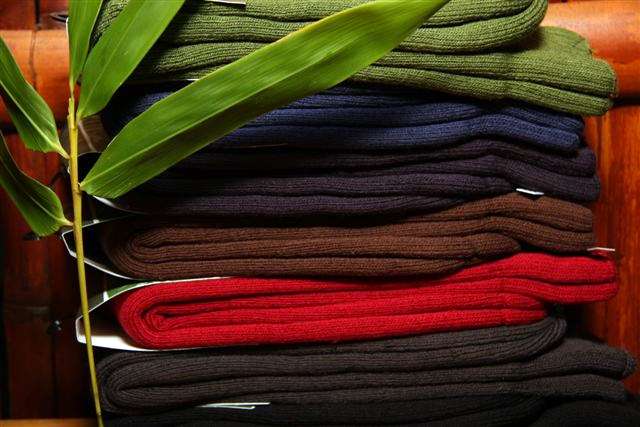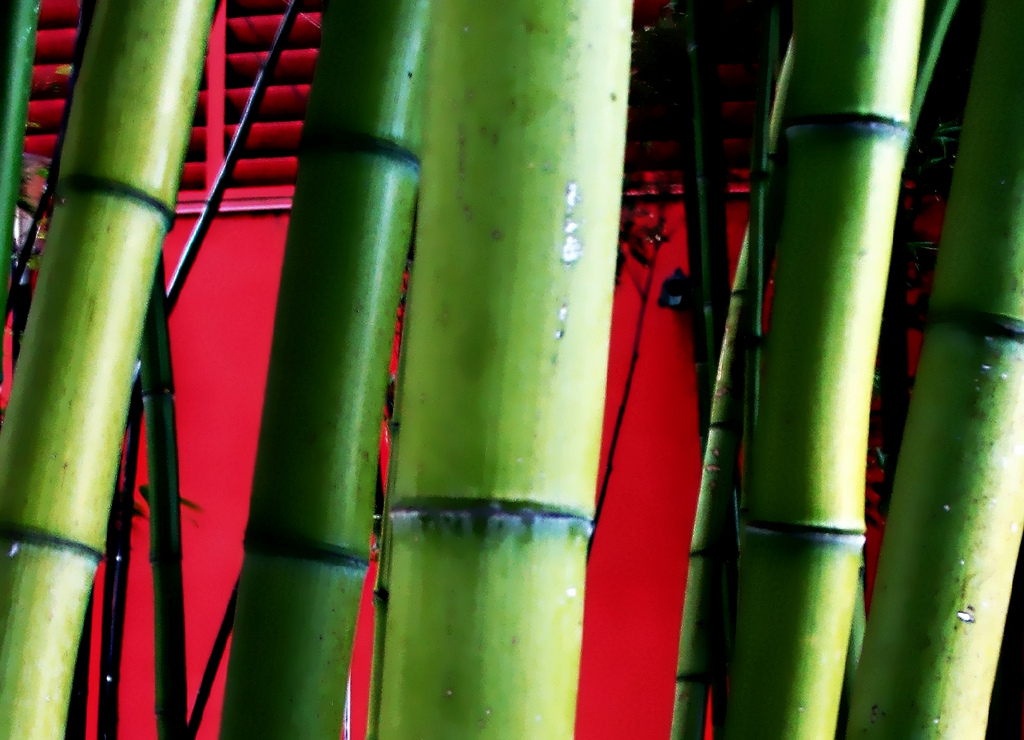
Is Bamboo Fabric an Sustainable Textile Fraud? The Textile Test Series Investigates
Bamboo is an extremely fast growing grass (yes, its technically a grass, though we use it as wood), taking only 4-5 years to fully mature and harvest (compare that with 20 years or more for other woods). It can grow up to a meter a day, and re-sprouts through its roots, so there’s no need for replanting (this very feature is how it can become an invasive plant in some places). The plant’s growth puts little strain on the environment because it requires no pesticides or irrigation for growth, and can be harvested sustainably (Note: There have been some reports of rainforest and other land being cleared to plant bamboo farms, which is, obviously, not sustainable).
Bamboo’s advantages, which may (or may not, depending on its origin plantation) apply to floors and building materials, however, don’t apply to fabric made from the wood.

Photo Credit Bamboo Textiles Australia
Turning bamboo into a silky fabric isn’t possible without highly intensive chemical processes, where approximately 13 different toxic solvents are used. The undertaking is a viscose rayon process, turning a cellulose fiber (plant material) into fabric. Any plant or tree—in this case bamboo—can be used as a cellulose source, but the fabrication transforms bamboo into rayon, and must be labeled as so. Not all ‘regenerating cellulose fibers’ are chemical intensive. For example, producing lyocell captures and reuses 99% of the waste.
Rayon made from bamboo is the most common type of bamboo fabric, resembling silk, in that it’s extremely comfortable and dyes easily. It’s the fabric you’ve most often associated with your bamboo sheets or t-shirt. But why have we seen a disappearance of ‘Made with Bamboo’ over the years?

Photo Credit Handan Baopeng Trading Co.
The confusion of labeling rayon made from bamboo, as simply bamboo, has been a complicated journey, with the Federal Trade Commission (FTC) at the front lines.
It all came to head in 2010 when the FTC sent warning letters to over 78 mega retailers including, Amazon, Barney’s New York, Bed Bath & Beyond, Bloomingdale’s, Costco, Hanes, JC Penney, Jockey, Kmart, Kohl’s, Land’s End, Macy’s, Nordstrom, Overstock.com, QVC, REI, Saks Fifth Avenue, Sears, Sports Authority, Target, The Gap, Toys R’ Us, Wal-Mart, and Zappos, who were mislabeling Viscose Rayon made from bamboo as Bamboo fabric.
Four national retailers—Amazon, Macy’s, Sears and Leon Max—ignored the warnings, and had to pay up to $1.26 million for violation (Sears, $475,000; Amazon, $455,000; Macy’s, $250,000; and Leon Max $80,000) against the Textile Products Identification Act (Textile Act).
“When attempting to appeal to environmentally conscious consumers, companies need to ensure they don’t cross the line into misleading labeling and advertising,” said Charles Harwood, Acting Director of the FTC’s Bureau of Consumer Protection. “If a textile is made of rayon, sellers need to say that, even if bamboo was used somewhere along the line in the production process.”

There is another type of bamboo fabric, lesser used, called natural Bamboo or Bamboo linen, derived from bamboo culms. The fabric holds the same characteristics of linen in that it wrinkles easily and can be laundered. Production of bamboo linen is confined to just one company in China, so little is known about the manufacturing of natural bamboo. They claim not to use any chemical additives in the production process—but information is limited and these claims can’t be supported.
Bamboo, although grown sustainably, is not an eco-textile. Keep the bamboo for your flooring and dish racks, but ‘Made with Bamboo’ fabric as we know it has seen its last labels as a soft, silky fabric.





